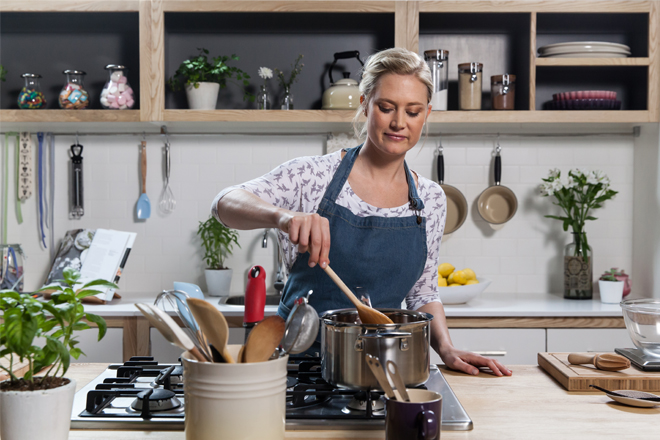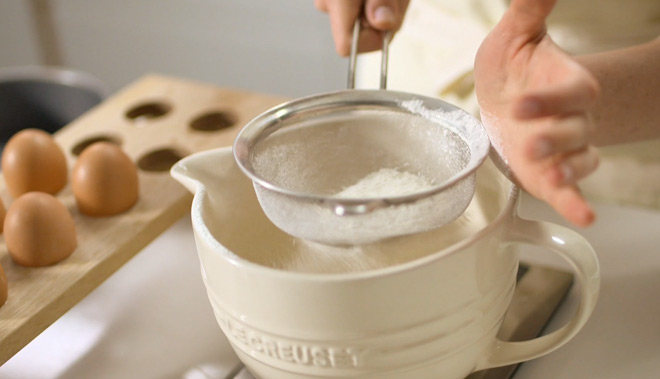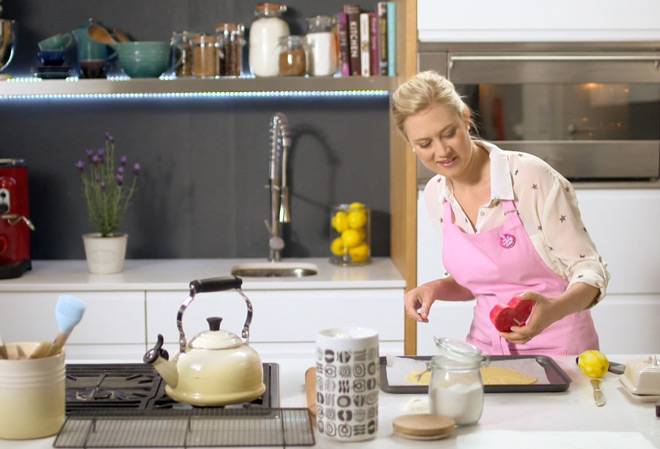Your most commonly asked baking questions answered by Sarah Graham
We’ve teamed up with cookbook author, blogger, baker and TV host, Sarah Graham for the latest in our range of Online Cooking Courses, Sweet Treats. Sarah’s a keen and experienced baker, so we thought we’d pose a few of the most commonly asked baking questions from our cooking and baking question and answer forum to see if she could help (spoiler alert: she totally did).

1. Which flour is it best to use if adapting a recipe to be gluten free?
It really depends on what you’re making – we’re all familiar with the gorgeously dense and gooey, almost truffle-like texture of a flourless chocolate cake, usually made with almond flour, but that’s not necessarily the best option for other gluten-free bakes. Sometimes a more delicate substitute is needed. Chickpea flour and rice flour are also useful go-tos for gluten-free options.

2. Butter versus margarine, who wins?
Oh goodness. Apologies for perceived snobbery here but margarine has never taken up residence in my fridge and isn’t likely to anytime soon. Chemically manufactured vs nature’s best? No contest for me and you can taste it too. Butter is beautiful, and makes the result taste richer and overall better.
3. Can you freely substitute white sugar for brown, Demerara or treacle sugar? How do these affect the end result?
The whiter the sugar, the more refined it is. Finer grains such as castor sugar don’t stick together and are best for whipping with eggs and butter for making light and fluffy cakes. Darker sugars have added molasses and the darker they are, the more molasses they contain (therefore, they are stickier). Also, the darker they are, the more caramelly and treacly they taste. Brown sugar makes a beautiful butterscotch.
4. What do you need to consider when decreasing the sugar content in a recipe?
Reducing the sugar content in a savoury dish where it’s used mainly for sweetness, such as a BBQ rub, is pretty simple. Reducing the sugar content in baked goods affects the overall balance and ratio of what you’re making so you need to be more careful as sugar contributes to more than just flavour, affecting colour, texture and moisture, too.

5. Egg sizes vary so much so how can we maintain consistency in recipes?
Most recipes are developed for large eggs, unless otherwise stated, which are about 50 grams out of the shell. One of my favourite recipe ratios is for a simple sponge cake 1:1:1:1 which means 100g self-raising flour; 100g butter; 100g sugar and 100g eggs (2 large eggs). Mix, add flavour (e.g. vanilla) and bake. And for the quickest pud, add in a little lemon zest and juice, divide between 4–6 greased ramekins and microwave on high for about three minutes. Serve steaming hot with lashings of cream.
So, there you have it, folks. Some quick answers to those burning baking questions. Got any more? Head on over to our forum and our smart community will no doubt be able to help or sign-up to our online cooking classes and learn from Sarah herself.
